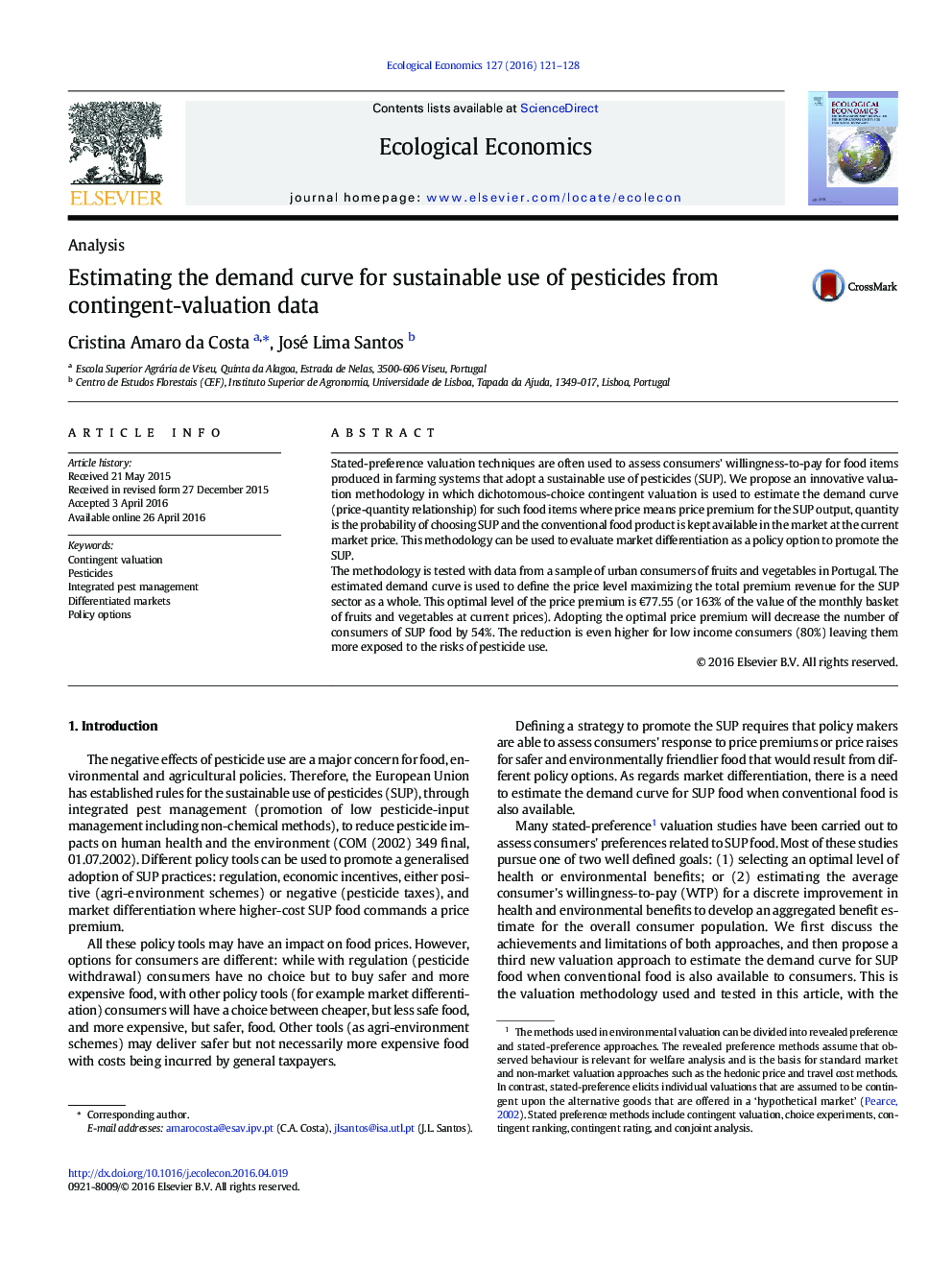| Article ID | Journal | Published Year | Pages | File Type |
|---|---|---|---|---|
| 5049115 | Ecological Economics | 2016 | 8 Pages |
â¢A demand curve for food from sustainable use of pesticides (SUP) was estimated.â¢Optimal pricing leads to a total premium revenue in the SUP sector of â¬766.5 M/year.â¢The optimal premium reduces the consumption of food from SUP systems in 54%.â¢The optimal premium excludes 80% of people in low income groups.
Stated-preference valuation techniques are often used to assess consumers' willingness-to-pay for food items produced in farming systems that adopt a sustainable use of pesticides (SUP). We propose an innovative valuation methodology in which dichotomous-choice contingent valuation is used to estimate the demand curve (price-quantity relationship) for such food items where price means price premium for the SUP output, quantity is the probability of choosing SUP and the conventional food product is kept available in the market at the current market price. This methodology can be used to evaluate market differentiation as a policy option to promote the SUP.The methodology is tested with data from a sample of urban consumers of fruits and vegetables in Portugal. The estimated demand curve is used to define the price level maximizing the total premium revenue for the SUP sector as a whole. This optimal level of the price premium is â¬77.55 (or 163% of the value of the monthly basket of fruits and vegetables at current prices). Adopting the optimal price premium will decrease the number of consumers of SUP food by 54%. The reduction is even higher for low income consumers (80%) leaving them more exposed to the risks of pesticide use.
